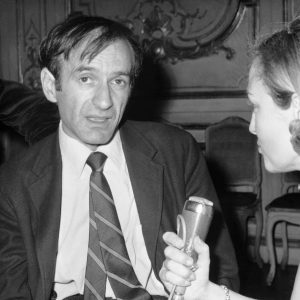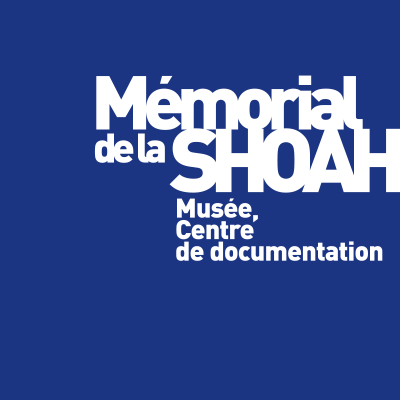«After The Night» by Elie Wiesel From one generation to another: the writing of great witnesses
Sunday, March 12, 2017 at 2 PM

Elie Wiesel © Shoah Memorial
Some witnesses wrote immediately after the war, thus creating a literary genre. Others, later, shed light on renewed aspects of the genocidal process and its aftermath. Over time, the public has discovered the works of Elie Wiesel, Primo Levi, Imre Kertész, Aharon Appelfeld, Charlotte Delbo and other great founding texts. How did these works impact our contemporaries and why did they become classics?
Apories and matrix games: the witness in Wiesel has always been wary of the writer. This mistrust has generated contradictions that have affected the reading of Wieselian texts. However, a careful study of the narrative The Night, in its different versions, offers a literary power that will never weaken. Because Wiesel was able to extract from this original crucible a work of testimony nourished by doubt and concern. Delphine Auffret is a specialist in the textual approach to testimony in Shoah literature.
Jewish witnesses, sad angels: with The Night, then The Last of the Righteous by André Schwartz-Bart in 1959, we witness the emergence of the «Jewish witness» as a universal martyr figure. What made this recognition possible? At the cost of which reconfigurations of what we then call testimony? What makes a text admissible, at what point? This will be an opportunity to return to other great texts published at the dawn of the sixties, and which had very unequal editorial destinies, from Jorge Semprun to Jean Améry, through Edgar Hilsenrath. Judith Lyon-Caen is a lecturer at the EHESS.
If André Gide could say that classicism tends entirely towards litotes, then the work, and in particular Wiesel’s theatrical work, should be classified among the supporters of anti-classicism, insofar as his testimony consists of saying more to make less heard. In this challenge to say the unspeakable, Elie Wiesel tries an original scenic way, to break the classic codes and propose new avenues for reflection. Guila Clara Kessous, actress and director, is a specialist in the dramatic work of the Nobel Prize winner and doctor under the direction of Elie Wiesel.
This meeting is part of a cycle of four meetings on the theme "D'une génération à l'autre: l'écriture des grands témoins"
In the presence of Delphine Auffret, a specialist in the textual approach to testimonies in Shoah literature, communications director at Alliance israélite universelle, Judith Lyon-Caen, lecturer at EHESS, and Guila Clara Kessous, actress and stage director.
Hosted by Michaël de Saint-Cheron, writer and philosopher of religions.
Cycle of 4 meetings. Rates: 5€/3€ per meeting,
3 sessions purchased = 3 € per session (when you book 3 meetings of this minimum cycle, you can choose them in "reduced rate (3€)" directly on our ticket office)
BOOK

